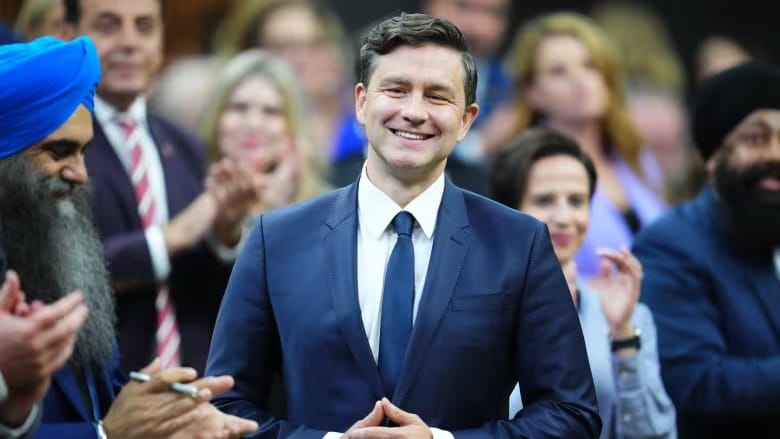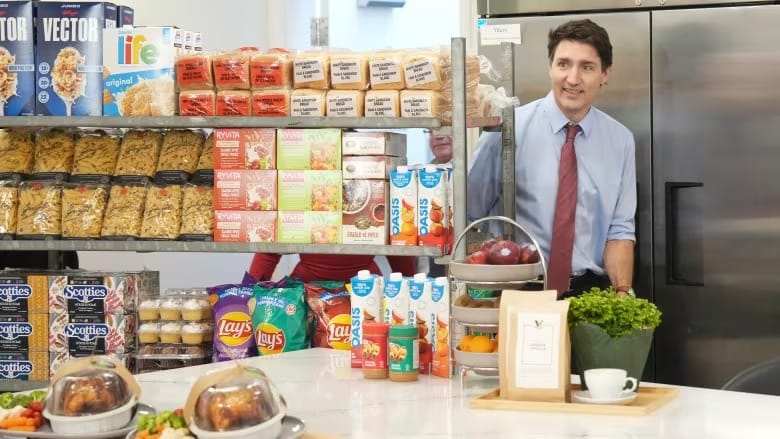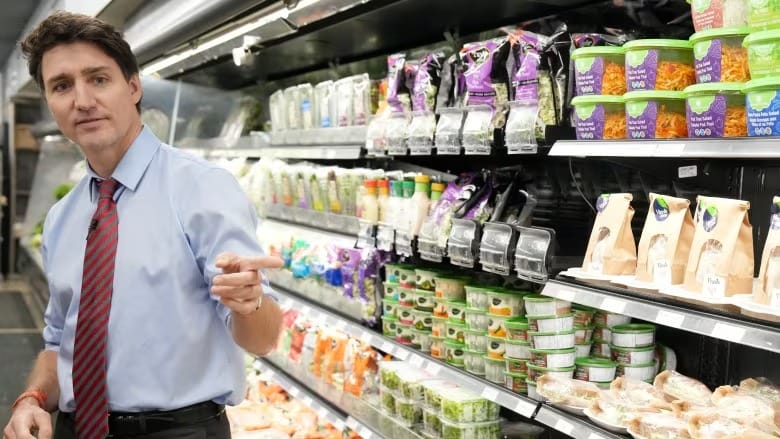Poilievre will introduce non-confidence motion next week to trigger election
If the motion clears Parliament, Canadians could headed to the polls this fall

Conservative Leader Pierre Poilievre plans to introduce a motion of non-confidence next Tuesday aimed at initiating a federal election.
The straightforward motion will state: "The House has no confidence in the prime minister and the government," and is set for debate and a final vote on Wednesday.
"We need a carbon tax election so Canadians can vote to eliminate the tax, build homes, fix the budget, and combat crime with a common-sense Conservative government," Poilievre told reporters on Parliament Hill in Ottawa on Wednesday.
He urged Jagmeet Singh and the NDP not to wait for the Bloc Québécois to intervene, and to announce their stance on the motion to trigger an election focused on the carbon tax.
The result of the vote remains uncertain.
If the motion passes, Canadians could face an election this fall. If it fails, the Liberals will continue governing.
With strong poll numbers, the Conservatives are eager for an election to leverage their current popularity and remove Prime Minister Justin Trudeau from office.
The Liberals aim to avoid an election to continue their governance and push forward with legislation like the pharmacare bill, which is still under consideration in the Senate.
Recent byelection losses in two traditionally safe Liberal seats have fueled discontent with the Trudeau government, although officials insist there is still work to be done.
Liberal House Leader Karina Gould blames Singh for the precarious situation, accusing him of jeopardizing progressive policies by undermining an agreement that supported the Liberal minority government.
"If he cares about climate change, pharmacare, dental care, and advancing a progressive agenda, he must prove it to Canadians next week," Gould said.
"For Mr. Singh, it's now a matter of whether he will once again acquiesce to Mr. Poilievre's demands or stand up for the issues Canadians care about," she added, referring to Singh's reversal on the Liberal government's carbon tax.
In Canada's Westminster system, the prime minister and government must maintain the confidence of the majority of MPs to remain in power.
To secure those votes, Trudeau and his cabinet must persuade at least one major opposition party to support them.
The Liberals currently hold 154 of the 338 parliamentary seats. To reach a majority of 169 MPs without Conservative backing, they would need support from either the NDP (25 MPs) or the Bloc Québécois (33 MPs). The Green Party, with only two seats, is not a significant factor in confidence votes.
The NDP has been ambiguous about its plans.
Singh stated on Tuesday that the Liberals are "finished" and informed his caucus that Trudeau and the Liberals "don't deserve another chance."
He has positioned his party as the progressive alternative to Poilievre, capitalizing on recent successes, including a byelection win in Winnipeg and a strong third-place finish in Montreal.
However, Singh has not committed to triggering a government collapse immediately, indicating that his caucus will decide their non-confidence votes on a "case-by-case" basis.
A federal election in the fall would pose challenges for the NDP, as their provincial counterparts in B.C. and Saskatchewan will also be campaigning in the coming months, straining the party's resources. Unlike other parties, the federal and provincial NDP wings operate as a unified entity.
The Bloc Québécois has suggested they might support the governing Liberals in exchange for concessions on policy demands.
Bloc Leader Yves-François Blanchet is calling for increased pensions for seniors, aiming to extend a recent 10 percent boost in Old Age Security (OAS) for seniors over 75 to all seniors over 65.
The Bloc's proposal, which is currently before Parliament, would significantly impact the federal budget. The Parliamentary Budget Officer estimates the cost of extending the OAS increase at $16.1 billion over five years, a substantial expense for the Liberal government as it seeks to balance the budget and meet NATO spending targets.





